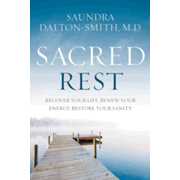
I’ll be honest, I used to think self-care was just bubble baths, spa days, and maybe sneaking in a piece of chocolate when no one was looking. (Okay, maybe several pieces. Don’t judge. 😅)
But as a busy mom, blogger, and ministry helper, I learned the hard way that running nonstop without caring for myself doesn’t make me more spiritual. Rather, it just makes me exhausted, cranky, and far less loving than I’d like to admit.
Somewhere along the way, I realized self-care isn’t selfish; it’s stewardship. It’s saying, “God, I value the life You’ve entrusted to me, and I’ll take care of it so I can serve You better.”
The Bible makes it clear: caring for yourself isn’t indulgence; it’s obedience. When you’re rested, nourished, and spiritually grounded, you’re able to pour out love with joy instead of running on fumes.
So, let’s walk through some biblical self-care tips together: practical, doable ways to refresh your spirit, protect your health, and honor God in the process.
Defining Biblical Self-Care

Biblical self-care looks a little different than what the world sells us. It’s not retail therapy at the mall (though hey, a Target run can be fun). It’s more about being a wise caretaker of the body, mind, and spirit God entrusted to you.
The world often says, “me first.” But biblical self-care says, “God first, so I can serve well.” It’s not indulgence; it’s stewardship.
Paul says in 1 Corinthians 6:19–20 that our bodies are temples of the Holy Spirit. Picture that. Our bodies themselves are cherished, sacred spaces. When you rest, nourish yourself, and protect your well-being, you’re not just doing it for you. You’re honoring God.
And the goal isn’t self-centeredness. It’s balance. It’s sleeping enough, eating well, praying regularly, and avoiding burnout, so you’re in shape (spiritually and physically) to give your best to God and the people around you.
Why Self-Care Is Essential for Christians
God cares about every part of you. He’s not just interested in your “spiritual life” while ignoring your physical and emotional health. If you keep running on empty, burnout is right around the corner, and that hurts not just you but your ministry, too.
Think about Matthew 22:39: “Love your neighbor as yourself.” That little phrase, ‘as yourself,’ is huge. How can we love others well if we don’t even know how to care for ourselves?
You’re supposed to shine as a light in the world. But if your light is flickering because you’re exhausted, stressed, or spiritually dry, how much impact will it really have? God doesn’t want you dim. He wants you bright, steady, and strong.
Self-care isn’t about escaping responsibility or slacking off. It’s about tending to your soul and body so you can actually keep going. It’s obedience, not indulgence.
Jesus as the Ultimate Example of Self-Care

When it comes to balance, Jesus is our best model. Think about it, if anyone had reason to say, “I’m too busy,” it was Him. And yet, He made time for rest, prayer, and solitude.
Mark 1:35 says, “Very early in the morning, while it was still dark, Jesus got up, left the house, and went off to a solitary place, where He prayed.” He carved out space to recharge with His Father before pouring Himself out to the crowds.
He also cared for physical needs. Remember how often He fed people? (Multiplying bread and fish isn’t exactly spa-level luxury, but it sure filled stomachs!) He knew caring for the body mattered as much as caring for the spirit.
And here’s the kicker: if Jesus, the Son of God, needed downtime, solitude, and nourishment, why do we think we can run nonstop? His life shows us that rest isn’t weakness; it’s wisdom.
Luke 5:16 reminds us that Jesus often withdrew to pray. Not once in a blue moon. Often. That’s our blueprint for healthy, balanced living.
Transforming Misconceptions About Self-Care
Let’s clear up a couple of myths.
Myth #1: Self-care is selfish.
Nope. Real, biblical self-care is about stewardship, not self-indulgence.
Myth #2: Busyness equals faithfulness.
This is also false. God never asked us to run ourselves ragged. He actually commanded rest. Exodus 20:8–10 calls us to honor the Sabbath. If rest was part of God’s rhythm, it should be part of ours.
The truth is, rest isn’t lazy; it’s godly. But our culture makes us feel guilty for slowing down. Don’t buy into that. Resting well and setting boundaries doesn’t make you less committed; it makes you more effective.
Think of it this way: saying “no” sometimes is really saying “yes” to God’s best.
Practical Christian Self-Care Tips
Alright, let’s get down to earth. Here are some real-life, biblical ways to care for yourself without it feeling like one more thing on your to-do list:
1️⃣ Nurture your spiritual life.
Think daily prayer, Bible reading, or even a quick verse on your phone while you wait for the coffee to brew. (Yes, that counts!) Psalm 46:10 reminds us: “Be still, and know that I am God.”
Even five minutes of stillness can reset your whole day.
2️⃣ Rest like you mean it.
Sleep is not a luxury; it’s a necessity. That late-night Netflix binge? Probably not helping. Build in Sabbath rhythms too, because God literally commanded rest. (If the Creator of the universe took a day off, you can too.)
3️⃣ Care for your body.
No, you don’t have to run marathons. A simple walk outside, stretching while you fold laundry, or swapping one soda for water makes a difference. 1 Timothy 4:8 says physical training has value, and that includes everyday small steps.
4️⃣ Set healthy boundaries.
Repeat after me: “No” is a holy word.
Proverbs 4:23 says, “Above all else, guard your heart.” Sometimes that means not answering texts after 9 p.m. or not saying yes to every church committee. Boundaries protect your best “yeses.”
5️⃣ Invest in relationships.
God designed us for community. That could mean a Bible study group, coffee with a friend who lifts you up, or calling your mom just to chat. Ecclesiastes 4:9–10 reminds us that two are better than one, because when one falls, the other can help.
6️⃣ Find joy in renewal.
Sometimes self-care is as simple as enjoying a hobby that refreshes you: gardening, painting, journaling, or yes, even sipping coffee in peace before the kids wake up.
Philippians 4:8 tells us to focus on what’s lovely and praiseworthy; so give yourself permission to do something that makes your soul smile.
7️⃣ Bonus tip: Take a nap.
Seriously. I often nap when putting my toddler down in the afternoon. Sometimes it’s only 30 minutes, sometimes a whole hour if I’m lucky. But those short naps recharge me more than another cup of coffee ever could. (Okay…sometimes I take the coffee, too. 😉)
Never underestimate the spiritual power of a good nap.
Self-care doesn’t have to be fancy or expensive. It’s those small, intentional choices that add up. Each one is a way of saying, “Lord, I want to honor You with my whole life: body, soul, and spirit.”
Key Takeaway

Biblical self-care isn’t selfish; it’s stewardship. It’s choosing rest, renewal, and healthy rhythms so you can serve God and others from a place of strength instead of exhaustion. Even small steps, like prayer, boundaries, or yes, a nap, are sacred ways to honor Him with your whole life.
Final Thoughts
Let me leave you with a little confession.
There was a season when I thought I could “push through” without slowing down: ministry work, family, late nights, early mornings. You name it, I did it. And guess what? I ended up in tears on the couch one night, holding my toddler who wanted to play, and realizing I had nothing left to give.
That moment was a wake-up call. God never asked me to burn myself out in His name. He asked me to abide in Him, to rest in Him, and to steward this body and soul He gave me.
These days, I’ve learned to notice the small ways God builds rest into my life: like those quiet afternoon moments when my toddler naps, and sometimes I nap too. It may not sound like much, but those little pockets of rest are often where I find His renewal the most.
So if you’ve ever felt guilty for resting or worried that taking care of yourself makes you less spiritual, let me assure you, it doesn’t. In fact, it’s one of the best ways you can honor God. Jesus Himself modeled it. And if He needed rest and renewal, we definitely do, too.
What about you? I’d love to hear your own practical self-care tips that help you stay refreshed and connected to God.
Share them in the comments. I know they’ll encourage others, too!
This post contains affiliate links, which means I may earn a commission at no extra cost to you if you make a purchase through one of these links. I only recommend products or services I trust and personally use. Thank you for supporting Biblical Christianity!
Recommended Resource
If you’d like to dive deeper into the biblical practice of rest, I highly recommend Sacred Rest: Recover Your Life, Renew Your Energy, Restore Your Sanity by Dr. Saundra Dalton-Smith. This book explores the seven types of rest we all need: physical, emotional, spiritual, and more, helping you find renewal God’s way.

|
Sacred Rest: Recover Your Life, Renew Your Energy, Restore Your Sanity By Saundra Dalton-Smith Buy on Amazon Buy on Christianbook |
